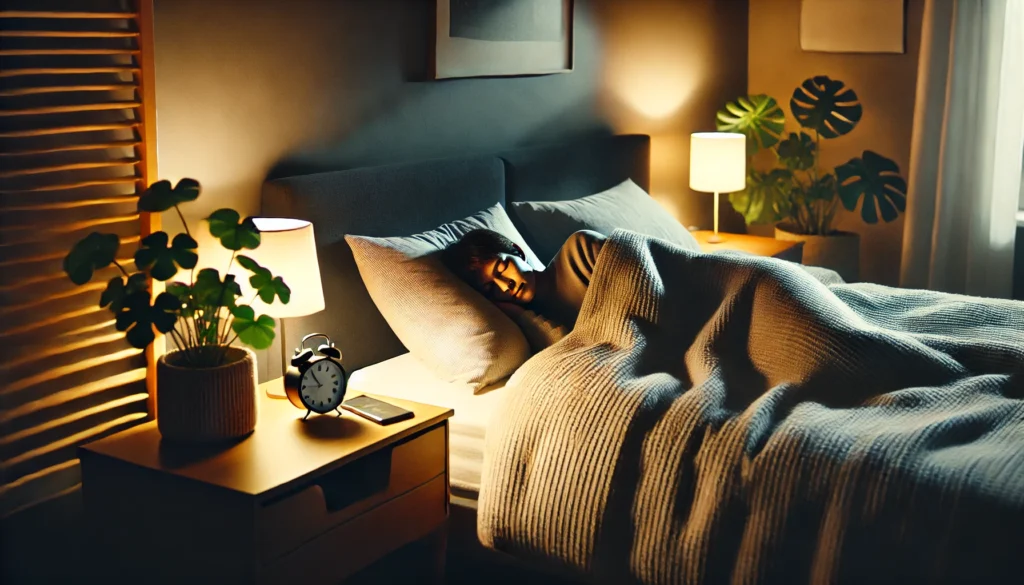Sleep is an essential pillar of health, yet millions of people worldwide struggle with poor sleep habits, leading to sleep deprivation. Understanding the impact of these habits is crucial for improving sleep quality and overall well-being. In this article, we delve into the statistics surrounding sleep deprivation, explore how many people are affected by bad sleep habits, and provide actionable insights to help break these patterns for a better night’s rest.
You May Also Like: Understanding the Impact of Chronic Sleep Deficiencies
The Alarming Statistics of Sleep Deprivation
Sleep deprivation is a growing concern with significant health implications. According to recent studies, approximately one-third of adults in the United States experience short sleep duration, defined as less than seven hours per night. Globally, the statistics are similarly concerning, with varying degrees of sleep deprivation affecting millions across different regions.
The Global Sleep Crisis
The sleep crisis is not confined to the United States. In Europe, studies indicate that more than 20% of people experience chronic insomnia. Meanwhile, in Asia, rapid urbanization and demanding work cultures have led to widespread sleep issues. This global phenomenon underscores the urgent need for international awareness and intervention strategies.
Demographic Differences in Sleep Patterns
Sleep deprivation affects various demographics differently. Young adults and teenagers are particularly susceptible due to academic pressures and social media usage, often sleeping less than the recommended hours. Conversely, older adults may suffer from disrupted sleep patterns due to health conditions, highlighting the need for age-specific sleep strategies.
Economic Implications of Sleep Loss
The economic cost of sleep deprivation is staggering. In the U.S., it leads to a loss of approximately 1.2 million working days annually. Other countries face similar challenges, with reduced productivity and increased healthcare costs burdening economies. Addressing sleep deprivation is not only a health issue but also an economic imperative.

Understanding the Root Causes of Poor Sleep
To tackle sleep deprivation, it’s essential to understand the common habits that contribute to poor sleep quality. Factors such as irregular sleep schedules, excessive screen time before bed, high caffeine intake, and stress are significant contributors to sleep problems.
Irregular Sleep Schedules and Their Impact
Irregular sleep schedules disrupt the body’s natural circadian rhythms. When individuals go to bed and wake up at varying times, it confuses the body’s internal clock, leading to difficulties in falling asleep and staying asleep. Establishing a consistent sleep routine can help align these rhythms for better sleep.
The Influence of Diet and Nutrition on Sleep
What you eat and drink profoundly affects your sleep. High sugar and fat intake can lead to restlessness, while certain foods like cherries and almonds promote sleep. Being mindful of your diet, especially in the hours leading up to bedtime, can significantly enhance sleep quality.
Psychological Factors Affecting Sleep
Psychological conditions like anxiety and depression are closely linked to sleep disorders. The racing thoughts associated with these conditions make it hard to fall asleep. Cognitive-behavioral therapy and mindfulness practices have shown promise in addressing these psychological barriers to good sleep.
Strategies for Breaking Bad Sleep Habits
Breaking bad sleep habits requires a proactive approach and a commitment to prioritizing sleep health. Here are some strategies to help you or your clients achieve better rest:
Establish a Consistent Sleep Schedule
One of the most effective ways to improve sleep quality is to maintain a regular sleep schedule. Going to bed and waking up at the same time every day helps regulate the body’s internal clock, making it easier to fall asleep and wake up naturally.
The Science Behind Sleep Schedules
Circadian rhythms, the natural cycles that dictate our sleep-wake patterns, thrive on consistency. When you stick to a regular schedule, you reinforce these rhythms, which leads to more restful sleep. Disruptions to this schedule can lead to sleep inertia and grogginess, impacting daily performance.
Tips for Maintaining a Sleep Schedule
To maintain a consistent sleep schedule, set a fixed bedtime and wake-up time, even on weekends. Use alarms or reminders to help stick to this routine. Gradually adjust your schedule if you’re shifting from a pattern of late nights, allowing your body to adapt smoothly.
Overcoming Challenges in Sleep Routine
Life events and work commitments can disrupt sleep schedules. To mitigate this, prioritize sleep as you would other essential tasks. Communicate your sleep needs to those around you, and practice resilience by returning to your schedule as soon as possible after disruptions.
Create a Relaxing Bedtime Routine
Developing a calming pre-sleep routine can signal to your body that it’s time to wind down. Activities such as reading, taking a warm bath, or practicing mindfulness meditation can help reduce stress and prepare the mind for restful sleep.
The Power of Relaxation Techniques
Relaxation techniques like deep breathing and progressive muscle relaxation can ease the transition to sleep. These practices decrease heart rate and calm the mind, preparing the body for slumber. Regular practice can enhance their effectiveness in promoting sleep.
Incorporating Mindfulness and Meditation
Mindfulness and meditation are powerful tools for improving sleep. They encourage a focus on the present moment, reducing the anxiety that often prevents sleep. Guided meditations specifically designed for sleep can further aid in establishing a peaceful bedtime routine.
Customizing Your Bedtime Rituals
Everyone’s ideal bedtime routine varies. Experiment with different activities to see which ones help you unwind the most. Whether it’s listening to soothing music or journaling, the key is finding what works best for your individual needs and preferences.
Limit Exposure to Screens Before Bed
Reducing screen time in the hours leading up to bedtime can significantly improve sleep quality. Consider implementing a digital curfew and replacing screen-based activities with more relaxing alternatives.

Understanding the Effects of Blue Light
Blue light from screens can delay the release of melatonin, a hormone that promotes sleep. This delay can shift your body’s natural clock, making it difficult to fall asleep. Awareness of blue light’s effects can motivate changes in evening habits.
Strategies for Reducing Screen Time
Implementing a digital curfew, such as turning off devices an hour before bed, can help improve sleep. Consider reading a book or engaging in non-digital hobbies instead. Additionally, using blue light filters on devices can minimize their impact on sleep.
Alternatives to Digital Entertainment
Exploring non-digital activities can enrich your pre-sleep routine. Puzzles, knitting, or listening to audiobooks can be enjoyable and relaxing alternatives. These activities provide entertainment without the stimulating effects of screens, promoting better sleep.
Optimize Your Sleep Environment
Creating a sleep-friendly environment is crucial for promoting restful sleep. Ensure your bedroom is cool, dark, and quiet, and invest in a comfortable mattress and pillows. Additionally, consider using blackout curtains or a white noise machine to eliminate external disturbances.
The Importance of Room Temperature
The ideal room temperature for sleep is between 60-67°F (15-19°C). Cooler temperatures facilitate the body’s natural drop in core temperature, which aids sleep. Adjusting your thermostat or using fans can help maintain this optimal sleep environment.
The Role of Bedding and Comfort
The quality of your mattress and pillows directly impacts sleep. Invest in bedding that supports your preferred sleep position and offers the right balance of comfort and support. Regularly clean and replace bedding to maintain hygiene and comfort.
Minimizing Noise and Light Pollution
External noises and light can disrupt sleep. Consider using earplugs or white noise machines to drown out disturbances. Blackout curtains can effectively block out unwanted light, creating a dark and peaceful setting conducive to restful sleep.
Monitor Caffeine and Alcohol Intake
Caffeine and alcohol can interfere with sleep, so it’s essential to monitor their consumption, particularly in the hours leading up to bedtime. Opt for caffeine-free beverages in the afternoon and evening, and limit alcohol intake to improve sleep quality.
Understanding Caffeine’s Impact on Sleep
Caffeine is a stimulant that can disrupt sleep, keeping you alert when your body needs rest. Its effects can last several hours, so it’s best to avoid caffeine in the late afternoon and evening. Understanding your sensitivity to caffeine can guide your consumption habits.
Alcohol and Sleep: A Misleading Relationship
While alcohol may initially induce drowsiness, it disrupts sleep cycles, leading to poorer quality sleep. It can cause awakenings during the night and reduce REM sleep, which is vital for cognitive functions. Moderation is key to minimizing its impact on sleep.
Developing Healthy Beverage Habits
Herbal teas, such as chamomile or valerian root, can be soothing alternatives to caffeine and alcohol. These beverages promote relaxation and can become a calming part of your bedtime routine. Experimenting with different options can help find what best supports your sleep.

Future Implications and Trends in Sleep Health
As awareness of the importance of sleep health continues to grow, so does the demand for solutions to improve sleep quality. Emerging technologies, such as sleep tracking devices and apps, are gaining popularity as tools to monitor and enhance sleep patterns. Additionally, the field of sleep medicine is advancing, with ongoing research into new treatments and interventions for sleep disorders.
Innovative Sleep Technologies
The market for sleep technology is booming with devices that track sleep patterns, monitor heart rate, and even adjust room conditions for optimal sleep. These innovations offer insights into sleep habits, enabling users to make data-driven adjustments to their routines.
Advances in Sleep Medicine
Sleep medicine is witnessing breakthroughs in understanding sleep disorders and their treatments. From new pharmacological solutions to behavioral therapies, these advancements offer hope for those suffering from chronic sleep issues. Continued research promises even more effective interventions.
The Role of Education in Promoting Better Sleep
Education plays a vital role in addressing the sleep deprivation epidemic. By raising awareness of the importance of sleep and providing practical strategies for improving sleep habits, individuals can take proactive steps to enhance their sleep health.
The Impact of Sleep Education Programs
Sleep education programs in schools and workplaces can significantly improve sleep hygiene. By teaching the science of sleep and practical strategies for improvement, these programs empower individuals to prioritize sleep and make informed decisions about their habits.
Community and Public Health Initiatives
Public health campaigns focused on sleep can shift societal norms and encourage healthier sleep practices. Community-based initiatives can provide resources and support, fostering environments where sleep health is valued and promoted.
Incorporating Sleep Education into Healthcare
Healthcare providers play a crucial role in sleep education. By integrating sleep assessments into routine check-ups and offering personalized advice, they can help patients recognize and address sleep issues. This approach can lead to broader improvements in public health.
Conclusion
Sleep deprivation is a widespread issue with far-reaching implications for health and well-being. By understanding the factors contributing to poor sleep and implementing strategies to break bad habits, individuals can achieve better rest and improve their quality of life. As we continue to prioritize sleep health, we pave the way for a more rested and healthier future.
In summary, breaking bad sleep habits for better rest involves a multifaceted approach that includes understanding the statistics, identifying root causes, and adopting practical strategies to promote healthy sleep. By doing so, you empower yourself or your clients to achieve optimal sleep and overall well-being.
By addressing sleep health, individuals can unlock significant improvements in their daily lives, enhancing both physical and mental health. As sleep science continues to evolve, the potential for new, innovative solutions grows, offering hope for tackling sleep deprivation on a global scale. Let’s prioritize sleep, recognizing its vital role in our journey towards holistic health.
Further Reading:
Kids and Poor Sleep: A Habit That’s Breakable
Waking up to the health implications of poor sleep habits
Important Note: The information contained in this article is for general informational purposes only, and should not be construed as health or medical advice, nor is it intended to diagnose, prevent, treat, or cure any disease or health condition. Before embarking on any diet, fitness regimen, or program of nutritional supplementation, it is advisable to consult your healthcare professional in order to determine its safety and probable efficacy in terms of your individual state of health.
Regarding Nutritional Supplements Or Other Non-Prescription Health Products: If any nutritional supplements or other non-prescription health products are mentioned in the foregoing article, any claims or statements made about them have not been evaluated by the U.S. Food and Drug Administration, and such nutritional supplements or other health products are not intended to diagnose, treat, cure, or prevent any disease.


